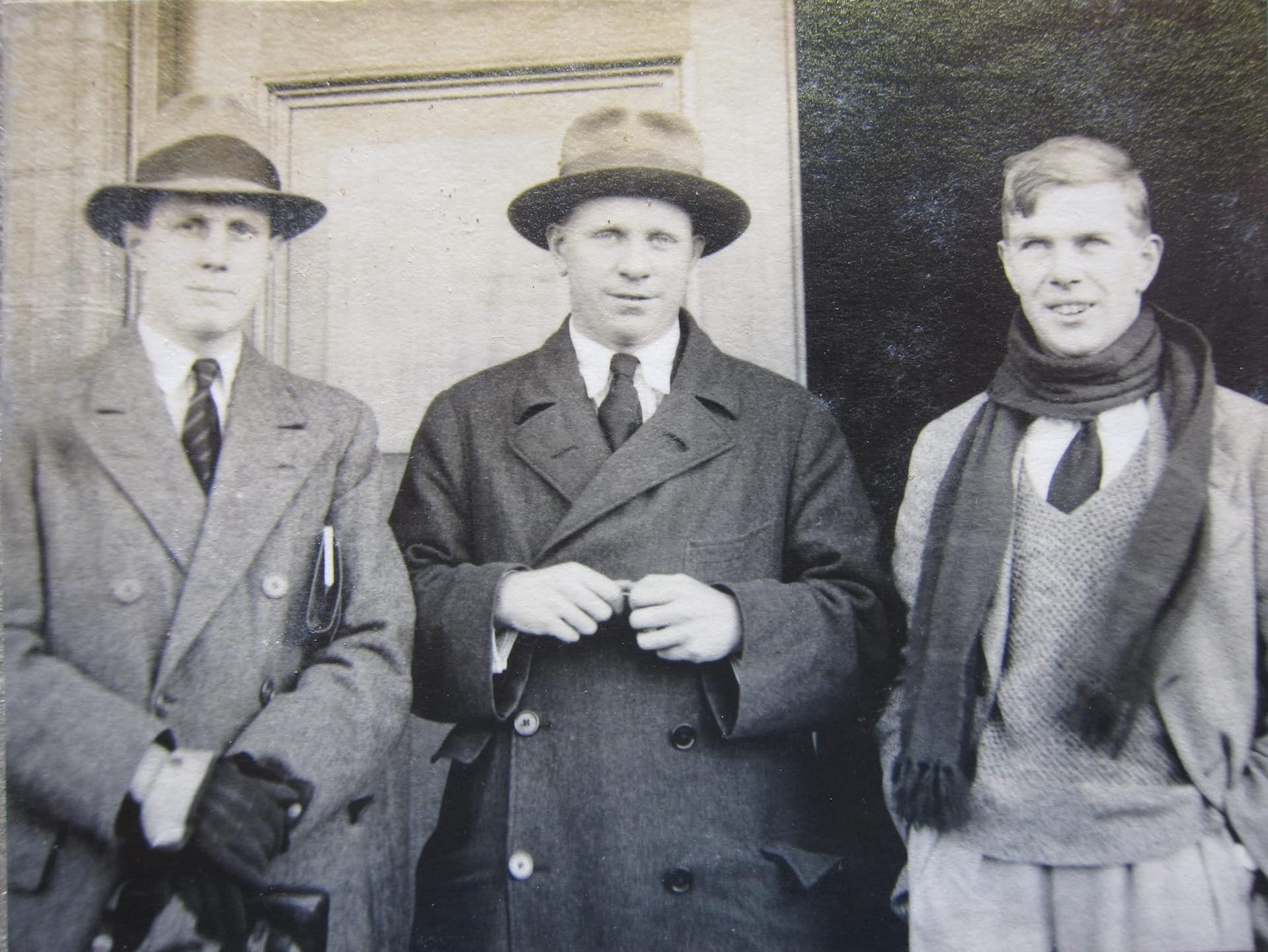Catching up with Family and Friends
Just before Edgar Whitehead completed his course at Broadstairs, the German invasion of the Low Countries began on May 10, 1940.

Edgar found himself in an infantry platoon to guard the cliff tops. There were a motley lot of R.A.S.C. on different kinds of courses. One group consisted of oil company employees who had been made available to the R.A.S.C. as petrol officers. The C.O. asked on parade, "Have any of you gentlemen previously handled a rifle?" Only one of them had.
Issued full battle equipment they set to work on coastal defenses. One of the jobs was to put up barbed wire entanglement on the foreshore at low tide so that any invading force would encounter it underwater when trying to wade ashore. Edgar was one of the very few officers who had regularly erected barbed wire in peacetime. Moral was very high amongst the troops helped by good, solid ignorance.
During a wiring party Edgar's Sergeant said, "It does seem a pity to be doing this."
"Why?"
"If ol' Hitler got to learn about it, 'e might not come after all."
But from the day the invasion of the Low Countries began the civilians in Thanet, as much as the men themselves, realized that the 'Sitzkrieg' was over and the war in earnest had began. They had ceased to be a joke in civilian eyes. All the same it was a considerable relief to see a highly efficient territorial battalion relieve the R.A.S.C. three days later. The trainees were sent off on leave pending posting to their various specialist units.
Edgar used the opportunity to pick up some threads of his old life in England, after twelve years absence in Rhodesia. His brother, St. John was at the Sixtieth Rifle Depot in Winchester. He got leave to join Edgar. Both in uniform they called in at Efford, the family manor house, to visit all the old retainers living in the cottages their father had left them.
One after another of them said, "We knew you would come home, Sir, as soon as there was any trouble."
As they walked around, St. John said to Edgar, "The war might well last as long as the Napoleonic Wars."
"I agree. The possibility of my returning to Rhodesia is very remote and being such a hopeless correspondent, I don't think anybody in Rhodesia even knows my address."
At the weekend their brother Arthur got leave and they went up to Oxford to see old friends. While Arthur went to see his tutor, Edgar went off to call on G.D.H. Cole, who had taught him most of his economics.
He knocked on G.D.H's door. When he opened it he took a look at Edgar's uniform, turned his back, and walked into his bedroom without saying a word.
Edgar waited patiently, knowing his man; he reappeared with a bottle and two glasses and said, "Whitehead, this calls for a celebration, we're on the same side for the first time."
Edgar spend the rest of his leave staying with various members of his family until orders to report to 912 Co R.A.S.C. at Tamworth in Staffordshire.
The historical novel Whitewashed Jacarandas and its sequel Full of Possibilities are both available on Amazon as paperbacks and eBooks.
These books are inspired by Diana's family's experiences in small town Southern Rhodesia after WWII.
Dr. Sunny Rubenstein and his Gentile wife, Mavourneen, along with various town characters lay bare the racial arrogance of the times, paternalistic idealism, Zionist fervor and anti-Semitism, the proper place of a wife, modernization versus hard-won ways of doing things, and treatment of endemic disease versus investment in public health. It's a roller coaster read.
References:
- Sir Edgar Whitehead's Unpublished Memoirs, Rhodes House, Bodleian Library, Oxford University, by permission.
- Photo Credit: Courtesy Mrs. Rachel Clarkson (Sir Edgar Whitehead's niece.)

